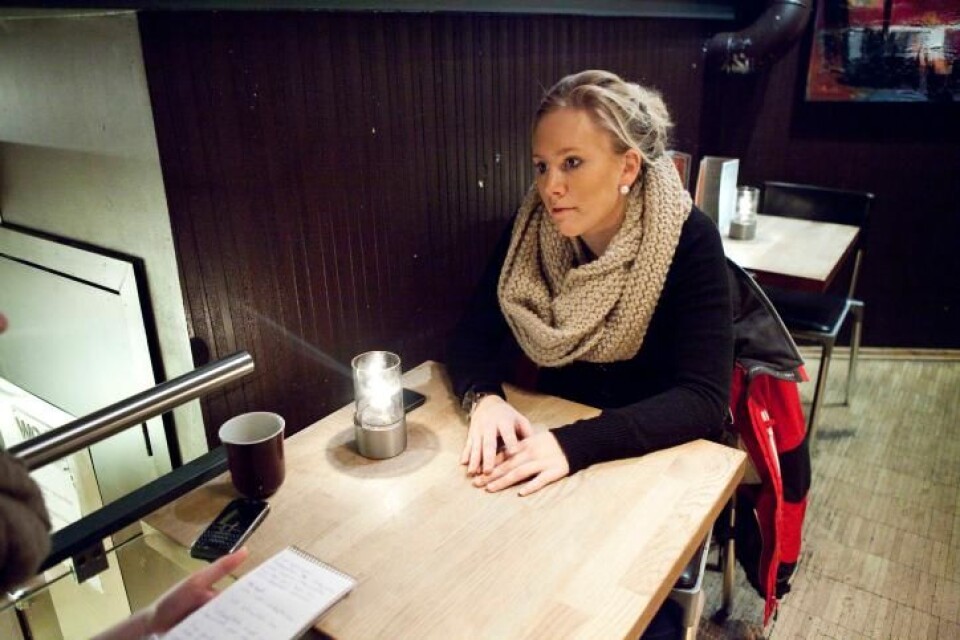
I Cried for Two Months
The chaos surrounding the internship program at the College of Sør-Trøndelag is causing students enormous frustration. Lack of relevant practical assignments and little follow-up from the college has become an everyday occurrence.
Tekst: Marte Voll, Eivind Digranes
Two weeks ago, several teaching students the College of Sør-Trøndelag (HiST) made public complaints regarding troubled and problematic arrangements for practical assignments. The nursing students have also experienced problems with internship positions.
Nursing student, Martine Schjølberg, had an internship at the Saupstad Health Center. She and her fellow students had heard that interns had had negative experiences there, but she still began the undertaking with a positive attitude.
“Our supervisor was the only nurse in the department, and she was really good. But on the first day, she had to be in a meeting and we were left alone with the assistant nurses. They didn’t think that we had any place in the department and they just threw us out,” she says.
Cried During the Experience
Schjølberg had several other negative experiences during her practical assignment and describes the period as a tough time.
“At meetings the assistant nurses talked over us and refused to speak to us. You become pretty psychologically damaged after having such a terrible time at work and them coming home and crying for two months. Soon I’ll be starting a new practical assignment in a new place and I’m afraid of experiencing something like that again,” she says.
She knows several other students who have had internships in municipalities outside of Trondheim. They have not always been able find acceptable housing.
”Some people have been forced to sleep on a mattress in an office, while others have lived in a room in the department where they worked,” she says.
Does not Follow the Guidelines
Ane Kvasnes Molvær, the new leader of the Student Representatives (SU) for the Department of Nursing Education (ASP) at HiST thinks that the current system is lacking and that it affects the quality of the practical assignments. Among other things, Molvær points out that nursing students end up in places where there are no permanent nurses, and that many of them have to fend for themselves during the practical assignment period.
The guidelines for nursing education state clearly that the students will receive frequent follow-up by the educational institution. According to the Society of Nurses, this should happen once a week.
“Several students see their main advisor for only three hours during the entirety of the practical assignment, which lasts about two months,” she says.
Molvær is also critical of the fact that many students have to move far out into the districts in order to obtain a practical assignment.
“This means that students either have to commute between Trondheim and their workplace or rent extra housing for duration of their assignment. These extra costs are only partly covered by HiST, and the students do not receive any help in finding a place to stay,” she says.
Not Enough Internship Positions
She has little patience for the fact that the college continues to use practical assignments which have received so much criticism from students without making an effort to improve the situation. She believes that part of problem is that the Norwegian Ministry of Knowledge puts pressure on HiST.
“The Ministry of Knowledge forces HiST to accept more students than its capacity allows. There are simply not enough intern positions for everyone,” she says.
Nursing students and previous student representative, Sunniva Myklebostad, in SU thinks that the current arrangements for practical assignments deserve a lot of criticism. She has spoken with many frustrated students. Like Molvær, Myklebostad emphasizes the particularly insufficient follow-up from the college.
“There is no doubt that HiST is not following the guidelines,” she says.
Myklebostad believes that it is difficult for students to complain about bad conditions when the teachers do not follow up with students according to the guidelines for education.
She fears that one consequence of the lack of follow-up can be that students who should not have passed the practical assignment, do anyway.
Unfamiliar with Complaints
Dean Anne Tveit at ASP admits the college sends students to places without full-time nurses, but states that the advisors at these places have enough competence to guide the students.
“If the students experience that they are left to themselves for large amounts of time, this is not necessarily due to the supervisor’s lack of knowledge, but it is, of course, unacceptable,” she says.
Tveit thinks that students who have to work in bad conditions during their practical assignment must contact their advisor, who will further take the message to the program manager. She believes that ASP takes such complaints from students very seriously.
“Such complaints have taken up by the program managers when they hear of them. We have also taken action to alleviate problems regarding certain places,” she says.
Tveit is not familiar with the complaints of insufficient follow-up of students, and points out that a survey to determine the quality of the program was completed last spring.
“In the survey, the students reported that they were satisfied with the way in which they received follow-up during their practical assignments,” she says.

































